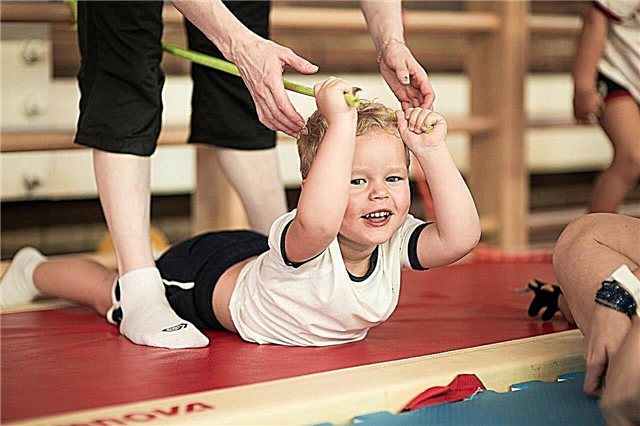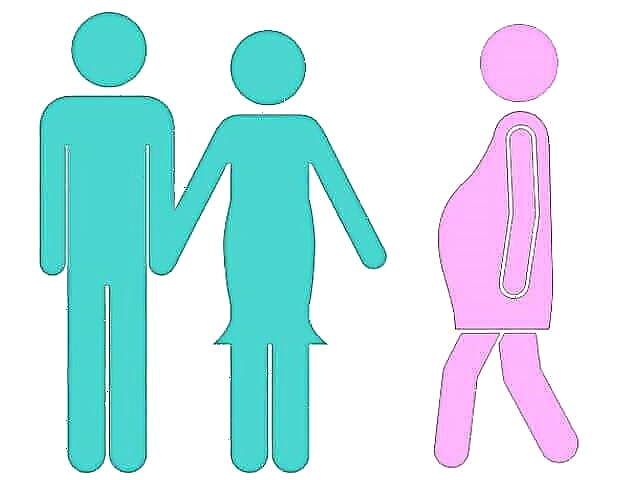Dreams and fantasies are common to all children from an early age. Such an interesting way of thinking gradually fades away over the years, since with age a person thinks more rationally and no longer gives free rein to imagination.

In fact, in order for the baby's thinking to develop outside the box, to develop creativity and inclinations, it is simply necessary to fantasize. A child who knows how to invent and dream grows up relaxed, open, kind, easily makes contact. Developed thinking is an integral part of a child's psychological development. Remember your childhood, when lying on the grass, you came up with images for passing clouds, or you could have a real battle without a single toy. All adults, too, were once little inventors.
But, nevertheless, parents are often worried about the question of where to see that line of children's inventions when they already border on the danger to the psyche.
Aggressive fantasies
Very often there are situations when yesterday a child associated himself with a kind doctor, a swimmer-rescuer, and today, with a furious cry, "flies" around the room and destroys everything around, and in kindergarten hurts other children. Fantasies suddenly cross the line and become aggressive. The child is increasingly fond of war games, destroys, breaks, destroys under the guise of monsters and villains, transferring a hostile attitude into everyday life. And now he already associates with the Evil of another person and can begin to fight against him physically.
If this begins to happen to your child, you should immediately identify the reasons for this behavior. Often, real experiences traumatizing the psyche can be transferred into the game.

Seen violence, scandals in the family, resentment and expectation of punishment - all this can lead to aggressive fantasies. A violent child is most often convinced that he is not loved.
In addition, watching films and cartoons that are not suitable for the child in terms of age leads to an aggressive form of imagination. The preschooler cannot yet clearly distinguish between the image of goodness. And if, for example, a seemingly positive cartoon character (Batman, Superman, Spider-Man) physically destroys his opponents in the fight against evil and injustice, the child's immature psyche takes it for granted. There is a substitution of the concepts of Evil and Good, in the child's head they simply mix.
The actions of parents with such a problem are understandable: you need to restrict the child from inappropriate cartoons, videos and films, you should not involve the child in watching adult films, seemingly the most innocuous content, there is an age limit for a reason.
If your baby's imagination has become aggressive, show your child more tenderness and affection, play good games (10 games to overcome child aggression), explain the difference between good and bad characters, review your own system of punishments and rewards. Only loving parents can find a compromise, teach children to cope with negative emotions.
Lying

The child may begin to use the imagination in an unnatural way and begin to openly lie. Most often, the child needs a lie for personal gain and can become a habit, so you need to identify the cause of the lie. A child may be trite to be afraid of punishment, therefore, shift the blame for the offense to a fictional character, animals, relatives. If a child cheats, multiplying his real merits, says that he won in something, that he was praised or rewarded, but this actually did not happen, then the problem lies in insecurity and the desire to feel support and self-worth. Sometimes children try to justify themselves by lying. “I left on my own, I was not kicked out”, “He was the first to start” - such phrases characterize self-doubt. A child may begin to tell others the truth about his own family, this is the first alarm signal about a broken relationship among relatives.
Do not try to eradicate the lie from the child with punishments and shouts, teach him to trust you, show by personal example the consequences of lying, tell how important trust is in family and friendship. Approach the situation wisely. Do not show lies yourself and condemn them in others.
- Childhood lies: why a child lies and how to teach him to tell the truth
- Raising an honest child
Fears
Almost all children are subject to a variety of fears: confined spaces, loneliness, darkness. Toddlers are frightened by unnatural sounds and even too bright objects.

If your kid has invented a bedside monster, or a monster in a closet, this is not a manifestation of a sick fantasy, but a projection of childhood fears. To prevent the condition from becoming pathological, help your child overcome fears. Draw kind monsters, come up with a magic spell or a super sword from all the villains, talk and explain.
Often children's fears are caused by ignorance, if the baby cannot explain a phenomenon to himself, he dramatizes what is happening and invents a danger. Explain to children the usual phenomena, show how and what works, happens.
Fictional friend
The appearance of an unreal comrade is a frequent occurrence. On the one hand, such a friend helps the child to experience and accept any situation, to express his emotions, to show leadership, on the other hand, it is an indicator of a lack of communication. Moreover, communication here is measured by quality indicators, the point is not in the total time spent with the baby, but in what emotions the child experiences, whether he can express himself and be frank.

[sc name = ”rsa”]
If the fantasy with a fictional companion is healthy, then the child is definitely aware of the edge with reality, understands and he himself says what is true and what is pretend.
If the child crosses the line and does not realize the difference between the invented and the real world, then it is worth contacting a psychologist, until this form of imagination has a negative impact on the psyche.
Fantasy cannot and unnecessarily be eradicated, it is important, on the contrary, to help the child develop imagination: to play, invent, tinker, do not throw away the collected treasures in the form of pebbles and sticks, but in every possible way contribute to the development of the child's creativity and individuality.
All children are not alike, each is individual and unique in its own way.
We advise you to read: How to deal with child boredom?



